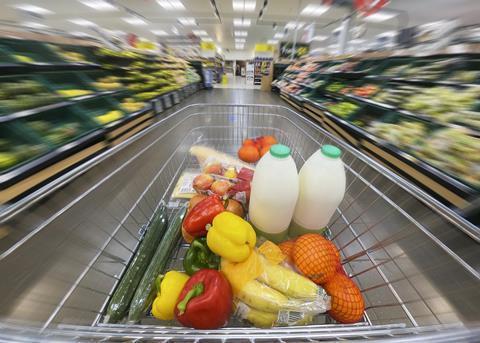
Fruit & veg has borne the brunt of the cost of living crisis. While input costs have soared, producers have been squeezed on margins and shoppers have dropped products from their baskets altogether.
Indeed, NielsenIQ’s data to September suggests Brits were cutting back on fruit & veg consumption before the pressures of winter began in earnest.
Veg sales fell 7.6% in value and 9.6% in volume, while fruit fared only slightly better, down 2.2% and 5.2% respectively.
Lisa Rees, retail team leader at NielsenIQ, sums up “a tough 12 months” for fresh produce, which has struggled against the pressures of “price inflation, cost pressures, labour challenges, Covid comparisons and household budgets”.
As Rees points out, some of these losses will be down to tough comparisons with the year before, when Covid restrictions resulted in higher at-home consumption. But the figures also highlight a wider issue identified by Veg Power in October, in that vegetables have decreased their share of retail basket value.
“I think what’s going to happen in practice is people are going to be taking that second or third portion of veg out of their basket, because it is not seen as being as essential as some other items,” said Dan Parker, CEO of Veg Power, at the time – whether those be real essentials like toilet roll or perceived essentials like chocolate biscuits for children.
He also expressed a worry that “new shopping patterns will become a habit that stays after the cost of living crisis has eased”.
Growers will be hoping this year isn’t a sign of things to come. All of the top 10 veg lines shed volumes, and eight lost value. Potatoes suffered the highest absolute value drop of £91.6m as alternative carbs like dry pasta proved a more popular way to make a cheap meal (p157). Potato market leader Branston says this was also symptomatic of “shoppers moving away from scratch cooking with fresh produce in favour of quicker cooking”.
This could similarly explain the significant value losses for mushrooms, peppers and onions, as volumes fell sharply.
Some categories fared better thanks to “a hot summer and longer-term healthier, lighter eating trends”, says Rees. Cucumber and bagged salad, for example, grew value 2.1% and 0.3% respectively – thanks to minimal volume losses of 5.2% and 3%. And tomato retained its position in the top spot for a second year, despite an 8.8% dip to volumes.
The only veg to actually boost units this year, however, was pumpkin. It’s up 24% in value and 21.7% in volume, likely due to the first entirely unrestricted Halloween since the onset of the pandemic.
This “difficult” year overall could well have consequences for 2023, warns Lee Stiles, secretary of the Lea Valley Growers Association. Not only are volumes declining, but rising energy costs have left many growers unable to heat their glasshouses, he reports.
In the face of these pressures, half of growers in the group decided not to plant this year, and 10 went out of business. Others in the sector may be faring worse.
While Lea Valley growers have received support from the main supermarket they supply, in the form of cost price increases, “the other supermarkets have not been so supportive, and it is likely more growers will not plant next year unless they can achieve the same cost price increase”, Stiles warns.
In fruit, it’s a similarly troubling picture. Volumes were down across the top 15 fruits, and only four registered any growth in value: strawberries, grapes, raspberries and watermelon.
The largest gain – and most positive story of the sector – was in strawberries, which added an extra £19m. Rees attributes this partly to “a long season due to a hot and extended summer, despite labour shortages.” Plus, “price points were keen across retailers due to strong availability”, she adds.
While unit sales were down 6.1%, this was at least partly down to the larger pack sizes sold by retailers for the Jubilee and other summer events.
One brand to release larger pack sizes in both strawberries and blueberries – the latter of which saw value dip 1.5% – was BerryWorld. This came in response to increased demand, says senior insight manager Hannah Goss.
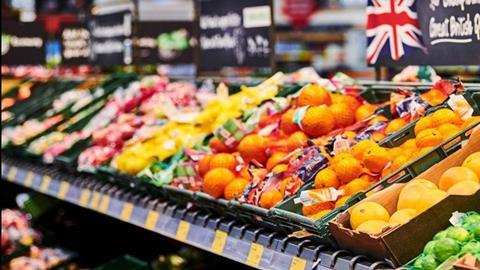
Berry boom
Berries could prove a success story again next year, following a major deal: Driscoll’s, the world’s largest berry supplier, took over a significant arm of the UK’s leading supplier, Berry Gardens in November.
Driscoll’s EMEA CEO Russell Allwell said the focus would be on “creating more value in the UK marketplace”, by boosting harvesting efficiency, increasing varieties grown in the UK and swapping all packaging away from plastic.
Nick Marston, president of British Berry Growers, also has plans to boost trade in the coming year. The association will focus on “demonstrating the versatility of berries” to “keep berries attractive and keep shoppers in the soft fruit category”, he reveals.
“In the coming 12 months, we will continue to highlight the myriad benefits berries can have, positioning them as an essential in shopping baskets.”
While the outlook is positive for berries, it’s less so for apples. It’s the fastest-falling fruit of the year, shedding £54.3m of its value. This is partly due to a rebound effect from Covid restrictions, says Ali Capper, chair of British Apples & Pears.
“Fresh produce, including apples, experienced double-digit growth in 2020 that was partly sustained into 2021,” she says. “It was inevitable that the fresh produce category and apples would revert to pre-Covid norms.”
However, the apple is also symptomatic of the wider problems facing fruit & veg aisles. “For some consumers, fruit is considered a premium purchase. In a cost of living crisis, consumers will make purchasing choices that could affect fruit sales,” Capper warns.
So, the economic situation could well be the main determinant of how healthy the sector is looking this time next year.
Top Launch 2022
Carbon neutral carrots | Freshgro
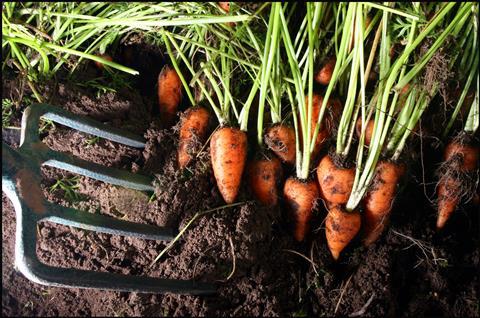
Freshgro claimed a world first in August with these chantenay carrots. The co-op cut the carbon footprint of its crop “through improved productivity, investments in renewable energy and consideration of how we farm”. The remaining carbon is offset through investment in such projects as a wind farm in the Philippines. The carrots – which produce just 0.03kg of CO2e per kilo – are grown within 15 miles of Freshgro’s packhouse, powered by wind turbine and solar panels.
The Grocer Top Products Survey 2022: How can brands stay in focus?
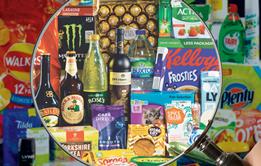
Commodity price hikes, the war in Ukraine and inflation have changed the way Brits shop in the past year, while also piling pressure on suppliers and retailers. Which brands and categories have negotiated the system shock best?
- 1
- 2
- 3
- 4
- 5
- 6
- 7
- 8
- 9
- 10
- 11
- 12
- 13
- 14
- 15
- 16
- 17
- 18
- 19
- 20
- 21
 Currently
reading
Currently
reading
Fresh fruit & veg 2022: fresh produce hit by ‘tough 12 months’
- 23
- 24
- 25
- 26
- 27
- 28
- 29
- 30
- 31
- 32
- 33
- 34
- 35
- 36
- 37
- 38
- 39
- 40
- 41
- 42
- 43
- 44
- 45
- 46



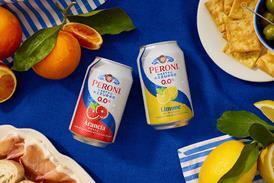



















![Cheese ]GettyImages-664658023](https://www.thegrocer.co.uk/Pictures/80x50/1/8/6/282186_cheesegettyimages664658023_540979.jpg)













































![Cheese ]GettyImages-664658023](https://dmrqkbkq8el9i.cloudfront.net/Pictures/80x50/1/8/6/282186_cheesegettyimages664658023_540979.jpg)




























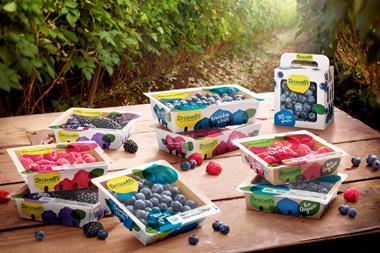

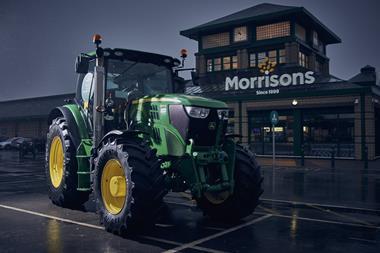
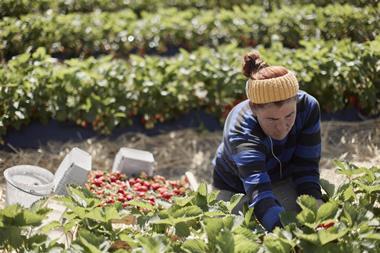
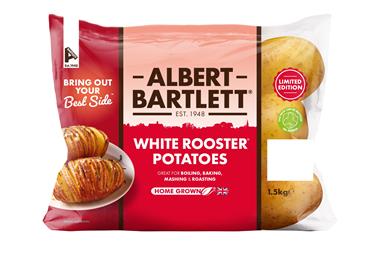




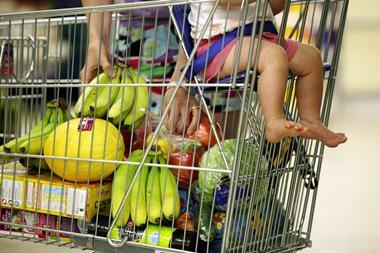


No comments yet